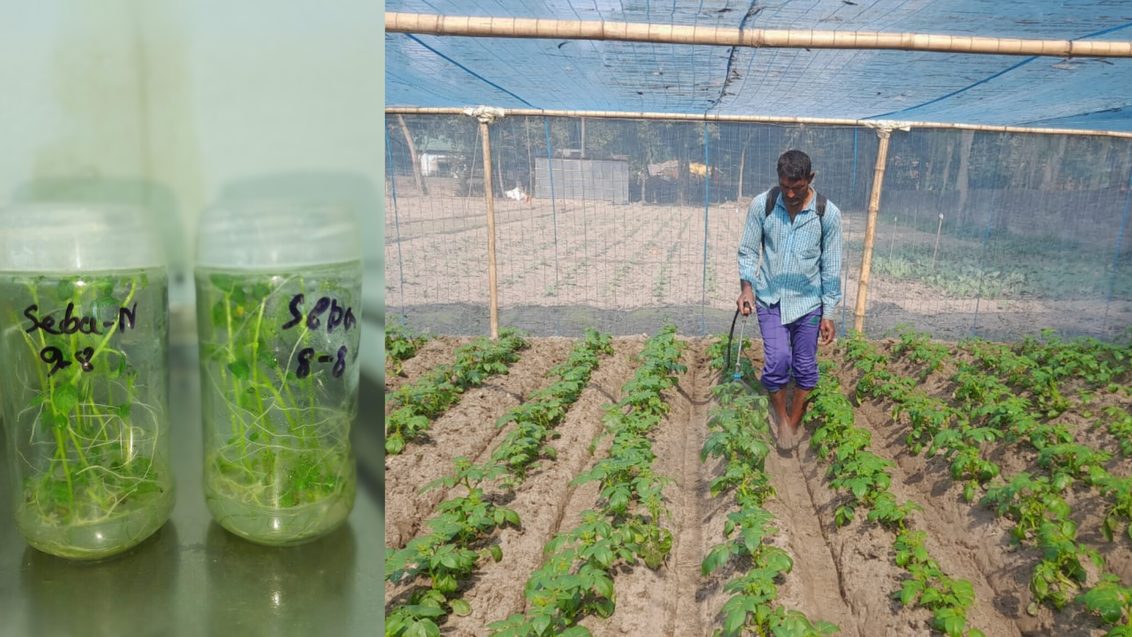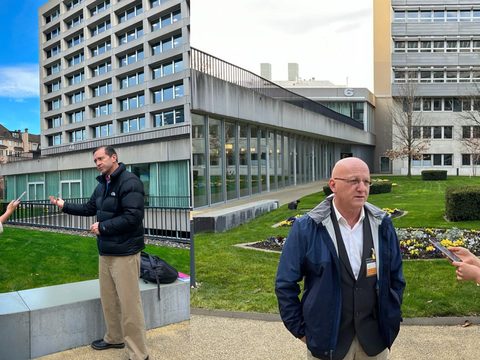Unleashing a Potato Farming Revolution in Bangladesh

Innovative technique of potato breeding shows promise in Bangladesh
Potatoes, a vital staple and affordable food source in densely populated Bangladesh, are set to undergo a revolutionary transformation in farming practices thanks to a groundbreaking technique for producing high-quality seed potatoes.
With potatoes ranking as the country's third most important crop, the scarcity of high-quality potato seeds in the market has been a significant challenge for farmers. Many have resorted to using seeds from the informal seed system, which often carry pathogens and pests, leading to reduced yields and increased production costs. To address this pressing issue and boost potato production, SFSA Bangladesh is introducing the Apical Rooted Cutting (ARC) Tissue Culture method.
ARC, an innovative approach, offers a solution for producing disease-free potato seeds. Unlike traditional methods that involve multiplying tissue culture plantlets, ARC directly produces rooted cuttings from the plantlets. These cuttings are then transplanted into the field to grow into seed tubers. This technique not only accelerates the process but also proves to be a more cost-effective alternative for seed potato production. The success of ARC has already been implemented in Kenya and India by the CIP International Potato Centre, and with their support, SFSA Bangladesh is now adopting this technology to bridge the gap between increasing demand and supply.
By introducing ARC to smallholder farmers in Bangladesh, the production of high-quality potatoes is expected to witness a significant boost. This method not only improves seed quality but also addresses challenges related to sourcing raw materials for smallholders and the slow-paced traditional seed market. As part of the implementation plan, SFSA Bangladesh aims to introduce the Atlantic potato variety using ARC, offering promising prospects for improved potato farming in the country. The scope of ARC technology extends to on-farm seed production, empowering smallholders to access high-quality, disease-free seed potatoes at a lower cost. Furthermore, it creates entrepreneurial opportunities for the development of new agri-entrepreneurs.
The SFSA Bangladesh team stationed at the R&D center in Rangpur has made remarkable progress in revolutionizing potato farming through this groundbreaking technique.
So far, we have successfully cut the plantlets apical four times, resulting in a total of 1903 healthy and vigorous potato apical cutting seedlings from 350 mother plantlets. The average success rate for apical cuttings was an impressive 90%, leading to a five-fold increase in the number of apical cutting plantlets.
Arvin Hassan, the R&D coordinator, SFSA Bangladesh
This innovative technique has the potential to be a game-changer for potato farming in the region, making high-quality seed potatoes readily available to smallholder farmers and establishing a strong market linkage between seed producers and private companies.
See how we are also using this breeding technique in Vietnam.

